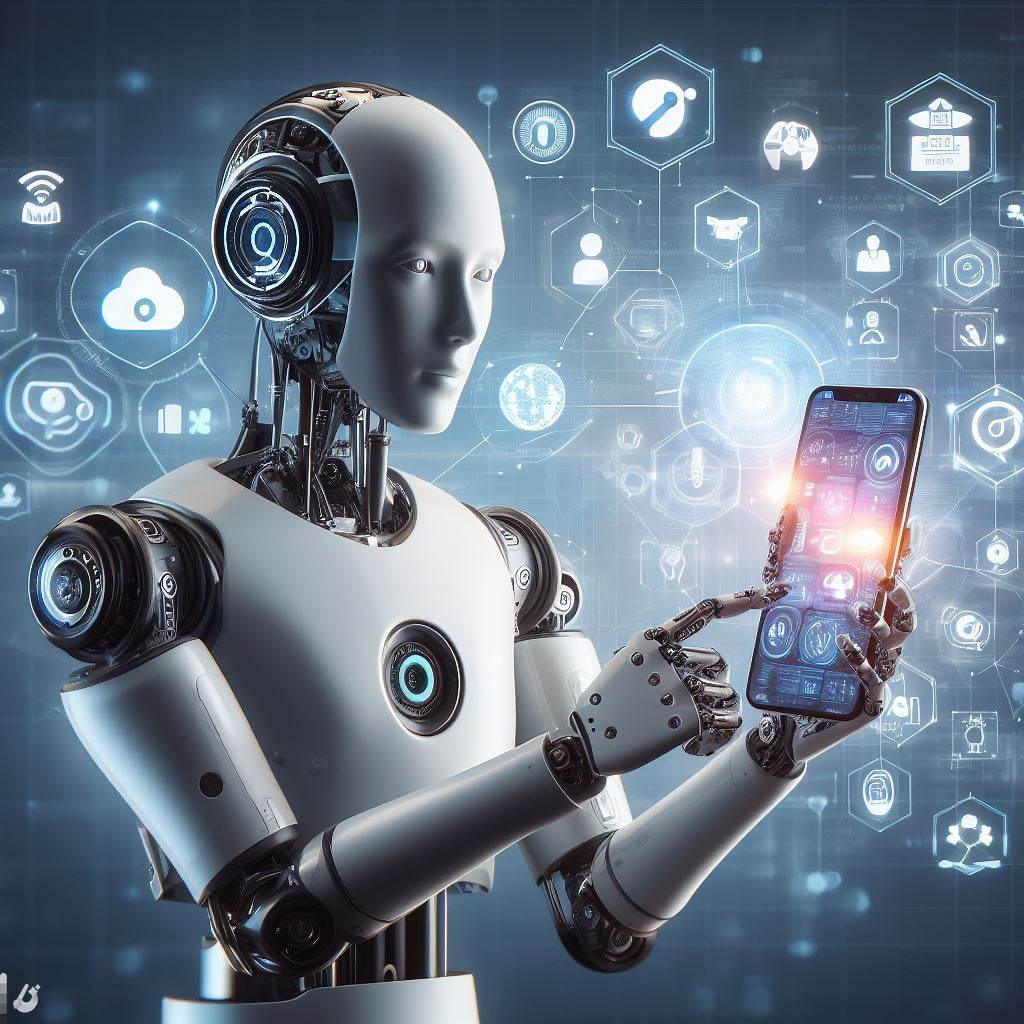In recent years, the integration of Artificial Intelligence (AI) into various aspects of technology has sparked discussions about its potential to revolutionize existing systems. One area where Artificial Intelligence’s impact is profoundly felt is the realm of mobile applications. As Artificial Intelligence continues to advance, many speculate on whether this technological marvel will render traditional mobile apps obsolete. However, rather than signifying an end, Artificial Intelligence seems poised to transform and enhance the landscape of mobile applications.
AI and Mobile Apps
AI’s emergence has brought forth a wave of innovations that challenge the conventional structure of mobile apps. With machine learning algorithms and neural networks at its core, Artificial Intelligence introduces a paradigm shift in how apps operate. Its ability to analyze vast amounts of data and make decisions based on patterns and user interactions has given rise to smarter, more intuitive applications.
One of the primary ways Artificial Intelligence is reshaping mobile apps is through personalization. Traditional apps often follow a one-size-fits-all approach, offering limited customization options. Conversely, Artificial Intelligence-powered apps leverage user data to provide personalized experiences. These apps adapt to individual preferences, learning user behavior to tailor content, recommendations, and user interfaces. For instance, Artificial Intelligence-driven virtual assistants like Siri or Google Assistant comprehend user habits and deliver more relevant information and suggestions over time.
Moreover, Artificial Intelligence’s integration has revolutionized user interfaces. Natural Language Processing (NLP) enables users to interact with apps through voice commands or text, streamlining user experiences. This shift toward conversational interfaces minimizes the need for traditional touch-based interactions, potentially redefining how users engage with mobile apps.
Artificial Intelligence-driven predictive analytics is another game-changer. These applications anticipate user needs and behaviors, offering proactive solutions. For instance, predictive text or autofill features in messaging apps utilize Artificial Intelligence to suggest words or phrases, enhancing communication efficiency. Similarly, predictive algorithms in e-commerce apps recommend products based on past purchases, preferences, and browsing history, augmenting user satisfaction and engagement.
Furthermore, the fusion of Artificial Intelligence with Augmented Reality (AR) and Virtual Reality (VR) is propelling mobile app capabilities to new heights. AR-powered apps overlay digital information onto the physical world, enhancing real-time experiences. Meanwhile, Artificial Intelligence algorithms improve VR simulations by rendering more immersive and interactive environments. This synergy is creating unprecedented opportunities across various sectors, from gaming and education to healthcare and retail.
Despite these advancements, the notion that Artificial Intelligence will lead to the demise of traditional mobile apps is unfounded. Rather than replacing them, AI augments and enhances existing apps. It empowers developers to create more intelligent, adaptive, and user-centric applications, driving innovation in the mobile app ecosystem.
However, challenges persist in Artificial Intelligence-powered mobile apps, particularly concerning privacy and ethical considerations. The collection and analysis of vast amounts of user data raise concerns about data privacy and security breaches. Ensuring transparency in data usage and implementing robust security measures is imperative to maintain user trust and mitigate potential risks associated with AI-driven apps.
In conclusion, AI is not heralding the end of mobile apps but rather heralding a new era of innovation and transformation. Its integration fuels the evolution of mobile applications, enabling them to become more intelligent, personalized, and efficient. As Artificial Intelligence continues to advance, the future of mobile apps holds tremendous potential for groundbreaking developments that cater to diverse user needs and preferences. Embracing Artificial Intelligence’s capabilities while addressing associated challenges will be crucial in shaping a future where mobile apps thrive in harmony with Artificial Intelligence technologies.
Also Read: Google Duet AI: How to Collaborate with AI in Google Workspace
Also Read: What is The Hitchhiker’s Guide to the Galaxy?The Inspiration for Elon Musk’s AI, Grok.

